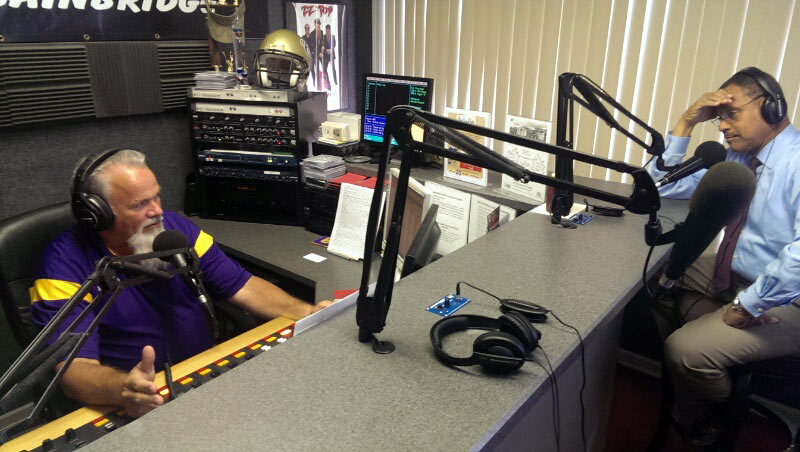
Kevin Dowdy and Dustin Dowdy of Flint Media Inc. took the ALS Ice Bucket Challenge Monday, August 18 to raise money for research of ALS / Lou Gehrig’s Disease!
The ALS Ice Bucket Challenge has raised more than $15 million for ALS research. Watch the video then read below to see how you can donate!
Learn more about the ALS Ice Bucket Challenge and Donate!
Amyotrophic lateral sclerosis (ALS), often referred to as “Lou Gehrig’s Disease,” is a progressive neurodegenerative disease that affects nerve cells in the brain and the spinal cord. Motor neurons reach from the brain to the spinal cord and from the spinal cord to the muscles throughout the body. The progressive degeneration of the motor neurons in ALS eventually leads to their death. When the motor neurons die, the ability of the brain to initiate and control muscle movement is lost. With voluntary muscle action progressively affected, patients in the later stages of the disease may become totally paralyzed.
Facts about ALS:
- ALS is not contagious.
- It is estimated that ALS is responsible for nearly two deaths per hundred thousand population annually.
- Approximately 5,600 people in the U.S. are diagnosed with ALS each year. The incidence of ALS is two per 100,000 people, and it is estimated that as many as 30,000 Americans may have the disease at any given time.
- Although the life expectancy of an ALS patient averages about two to five years from the time of diagnosis, this disease is variable and many people live with quality for five years and more. More than half of all patients live more than three years after diagnosis.
- About twenty percent of people with ALS live five years or more and up to ten percent will survive more than ten years and five percent will live 20 years. There are people in whom ALS has stopped progressing and a small number of people in whom the symptoms of ALS reversed.
- ALS occurs throughout the world with no racial, ethnic or socioeconomic boundaries.
- ALS can strike anyone.
- The onset of ALS is insidious with muscle weakness or stiffness as early symptoms. Progression of weakness, wasting and paralysis of the muscles of the limbs and trunk as well as those that control vital functions such as speech, swallowing and later breathing generally follows.
- There can be significant costs for medical care, equipment and home health caregiving later in the disease. It is important to be knowledgeable about your health plan coverage and other programs for which your may be eligible, including SSA, Medicare, Medical and Veteran Affairs benefits.
- Riluzole, the first treatment to alter the course of ALS, was approved by the FDA in late 1995. This antiglutamate drug was shown scientifically to prolong the life of persons with ALS by at least a few months. More recent studies suggest Riluzole slows the progress of ALS, allowing the patient more time in the higher functioning states when their function is less affected by ALS.


Be the first to comment